
K-Mox-CV Dry Syrup
Manufacturer
Kriti Lifesciences
Salt Composition
Amoxycillin (200mg) + Clavulanic Acid (28.5mg)
Key Information
Short Description
K-Mox-CV Dry Syrup is an antibiotic medicine that helps treat bacterial infections of the ear, nose, throat, chest, lungs, teeth, skin, and urinary tract.
Dosage Form
Oral Suspension
Introduction
K-Mox-CV Dry Syrup is an antibiotic medicine that helps treat bacterial infections of the ear, nose, throat, chest, lungs, teeth, skin, and urinary tract. It is capable of killing bacteria that have become resistant to other therapies and thus also helps treat tuberculosis that is resistant to other treatments.
Directions for Use
Your child must complete the entire course of antibiotics. Stopping too soon may cause the bacteria to multiply again or cause another infection.
How it works
K-Mox-CV Dry Syrup is an antibiotic. It has two active agents amoxycillin and clavulanic acid. Amoxycillin works by preventing the formation of the bacterial protective covering (cell wall) essential for the survival of the bacteria. Whereas clavulanic acid serves a special purpose of inhibiting an enzyme (beta-lactamase) that is produced by resistant bacteria. This makes the combination of amoxycillin and clavulanic acid an effective line of treatment for many types of infections.
Quick Tips
Your child must complete the entire course of antibiotics. Stopping too soon may cause the bacteria to multiply again or cause another infection. Your child may have a bitter taste in the mouth after the intake of K-Mox-CV Dry Syrup. Eating citrus fruit or sipping plenty of water or fruit juice may help. Encourage your child to drink plenty of water in case diarrhea develops as a side effect. Never give K-Mox-CV Dry Syrup until and unless prescribed by the doctor. Do not give K-Mox-CV Dry Syrup to treat common cold and flu-like symptoms caused by viruses. Never save medicine for future illnesses. Check ‘expiry’ before giving K-Mox-CV Dry Syrup to your child. Immediately discard all the expired medicines. Stop K-Mox-CV Dry Syrup immediately if your child develops an itchy rash, facial swelling, or breathing difficulty. Report to the doctor without any delay.
Related Medicines
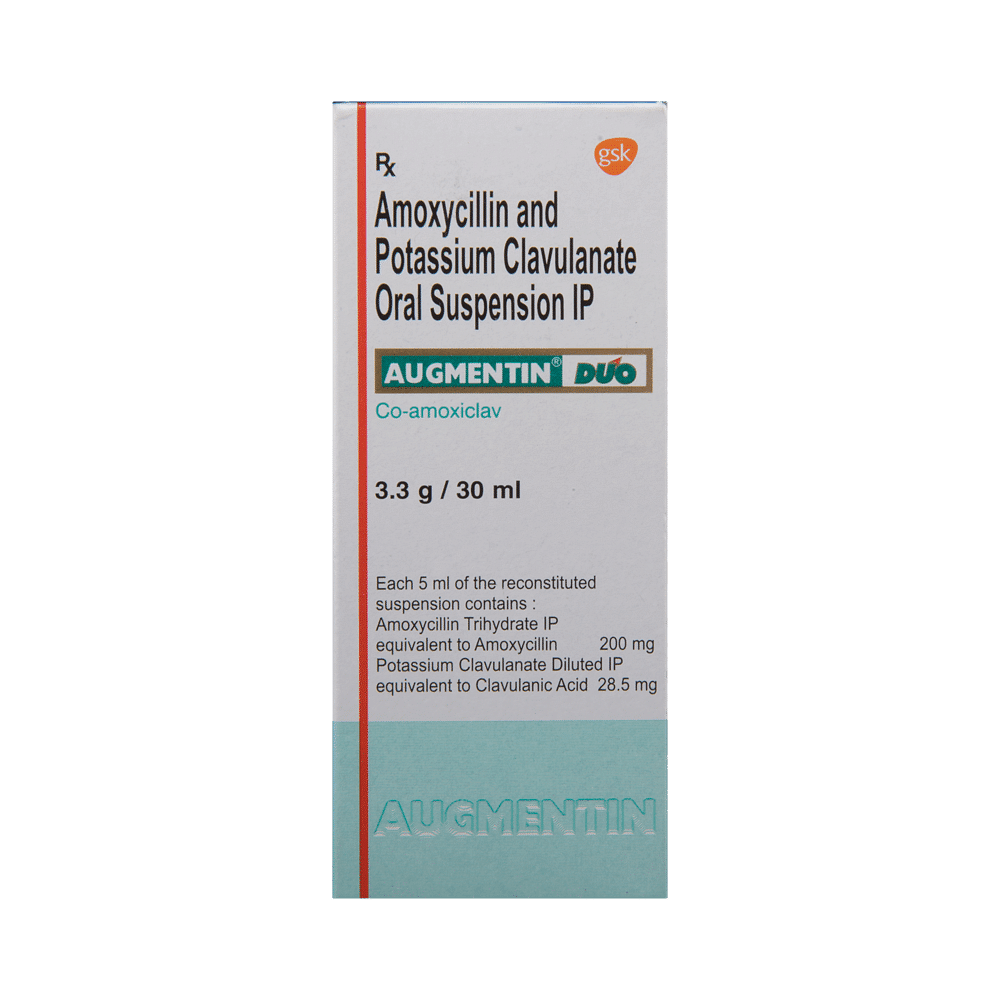
Augmentin Duo Suspension

Amoxykon-Clav Dry Syrup
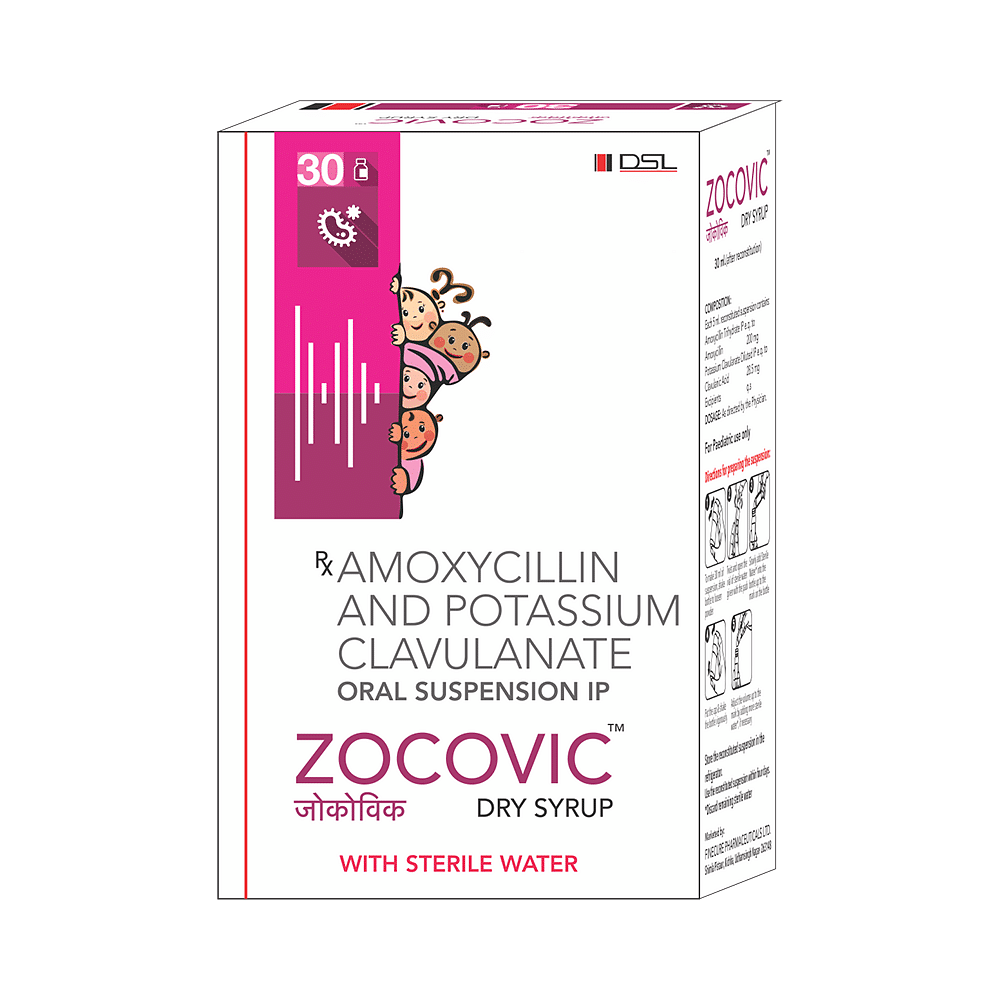
Zocovic Dry Syrup
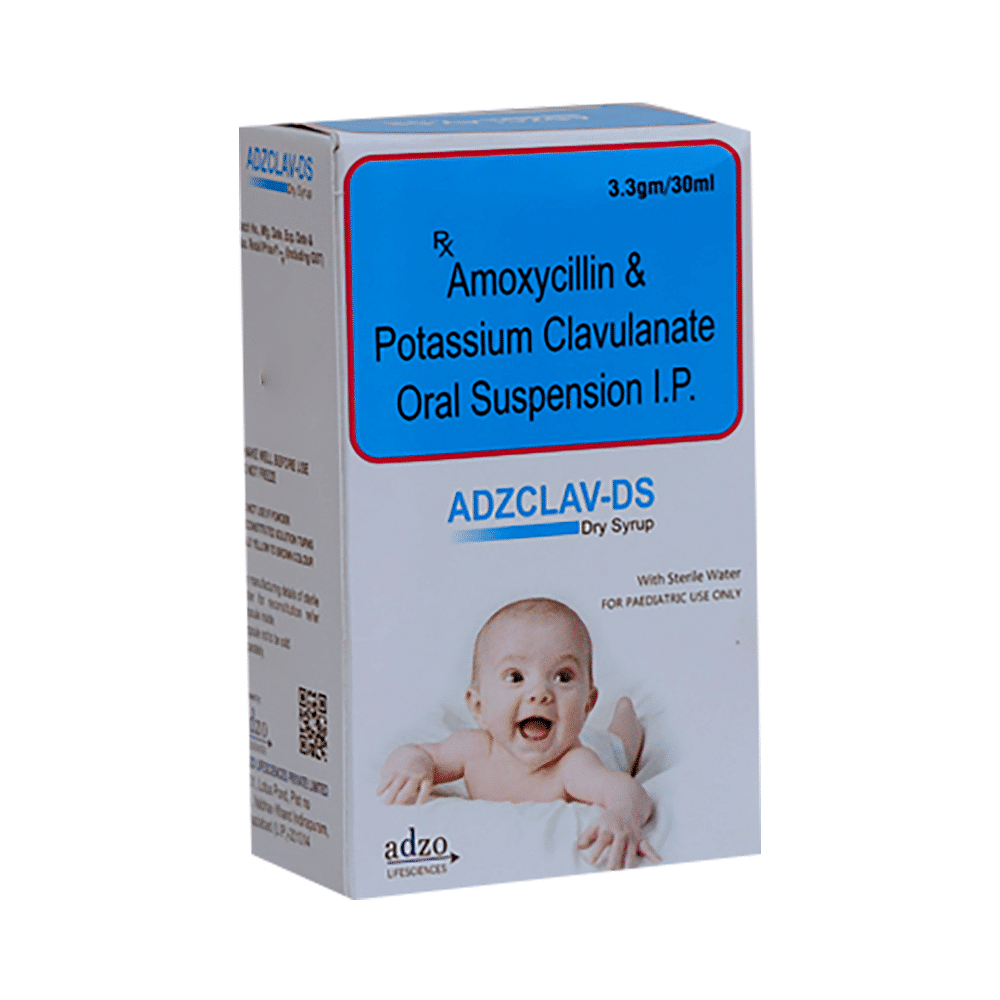
Adzclav-DS Dry Syrup
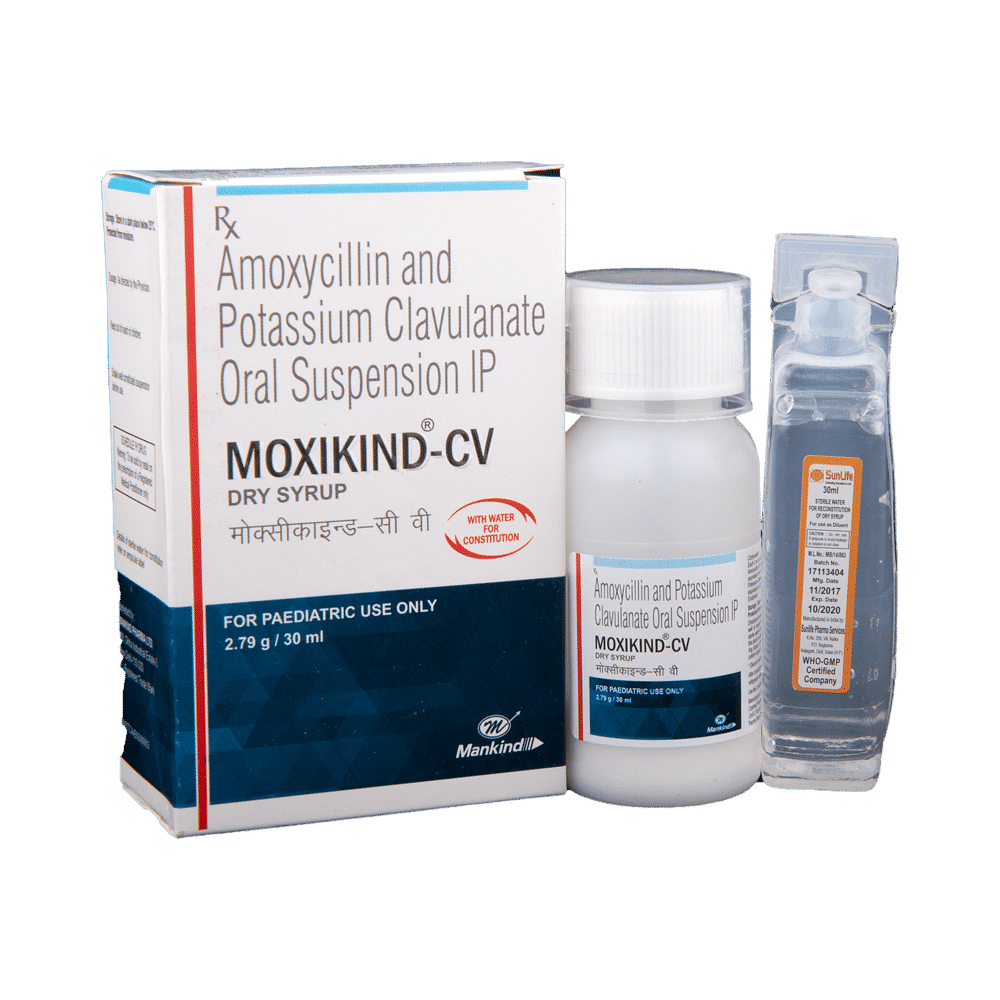
Moxikind-CV Dry Syrup
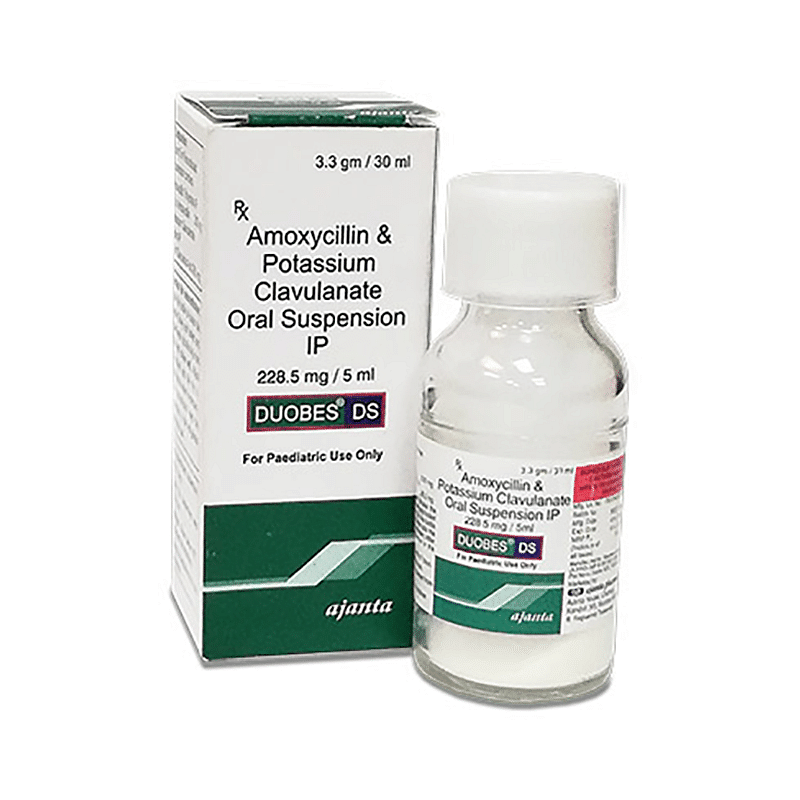
Duobes DS Oral Suspension
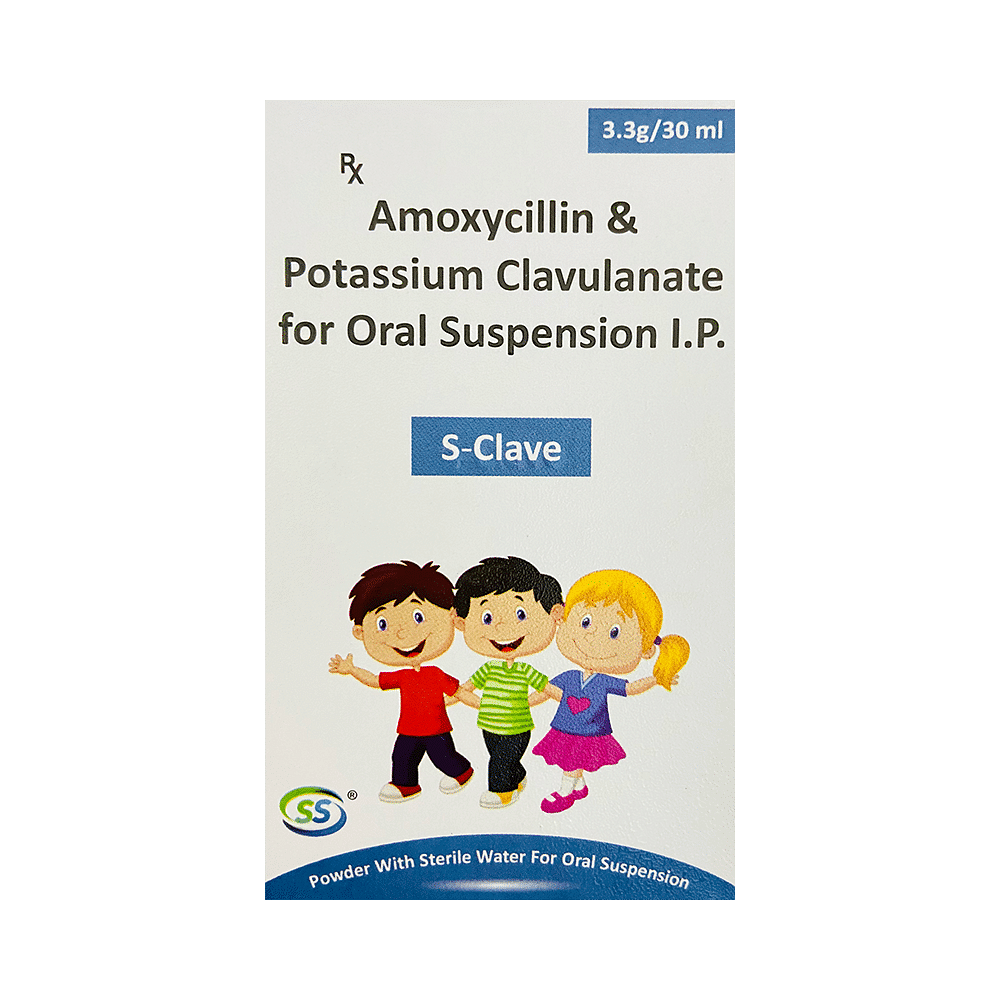
S-Clave Oral Suspension

Wissclav Dry Syrup

Amoxylav CV Dry Syrup

Bactoclav Dry Syrup
Frequently asked questions
Can other medicines be given at the same time as K-Mox-CV Dry Syrup? Can my child take other medications while on treatment with K-Mox-CV Dry Syrup?
K-Mox-CV Dry Syrup may interact with other medicines. It's important to discuss all medications your child is taking, including over-the-counter medications, with your doctor before starting or during treatment with K-Mox-CV Dry Syrup. Your doctor can advise on appropriate medication combinations and dosages.
Can I get my child vaccinated while on treatment with K-Mox-CV Dry Syrup? Can I give vaccines to my child while taking antibiotics?
Antibiotics are generally not a concern for vaccination. However, it's crucial to consult your doctor before giving any vaccine to your child while they're on antibiotic therapy. Ensure your child is fully recovered before vaccinating.
Which lab tests may my child undergo during long-term use of K-Mox-CV Dry Syrup?
Your doctor might order periodic kidney and liver function tests to monitor your child's condition while on prolonged therapy with K-Mox-CV Dry Syrup.
Can I give a higher than the recommended dose of K-Mox-CV Dry Syrup to my child? What should I do if symptoms worsen?
Never exceed the prescribed dosage of K-Mox-CV Dry Syrup. Giving a higher dose can increase the risk of side effects. If your child experiences worsening symptoms, contact their doctor for re-evaluation.
Can I stop giving K-Mox-CV Dry Syrup to my child when the symptoms are relieved? Can I discontinue treatment based on improvement?
No, do not stop K-Mox-CV Dry Syrup unless your doctor has completed the full course. The medicine may still be beneficial even if you see improvements in symptoms.
Can the use of K-Mox-CV Dry Syrup cause diarrhea?
Yes, K-Mox-CV Dry Syrup can cause diarrhea. This is because it's an antibiotic that eliminates harmful bacteria. In addition, it may also affect beneficial bacteria in your child's stomach and trigger diarrhea. Encourage your child to drink plenty of fluids in case of diarrhea. If the diarrhea persists or you notice dehydration signs (less frequent urination with dark-colored and strong-smelling urine), seek advice from a medical professional before administering any additional medication.
Do all viral common colds result in secondary bacterial infection?
Most common colds do not lead to bacterial infections. Giving antibiotics in viral infection can increase your child's risk of side effects. Antibiotic use is only recommended after consulting a doctor.
The mucus coming out of my child’s nose is yellow-green. Is this sign of a bacterial infection?
Yellow or green mucus in the nose does not necessarily indicate a bacterial infection, especially during a common cold. This change in color and consistency is normal in many cases. It's important to monitor symptoms for about 7-10 days.
Is there any sign which shows that my child needs immediate medical attention? What are the signs of serious complications?
Seek immediate medical care if your child experiences severe allergic reactions (difficulty breathing, skin rashes), gastrointestinal issues like diarrhea, or liver problems like weakness, paleness, and vomiting. These symptoms require immediate medical attention from a doctor.


